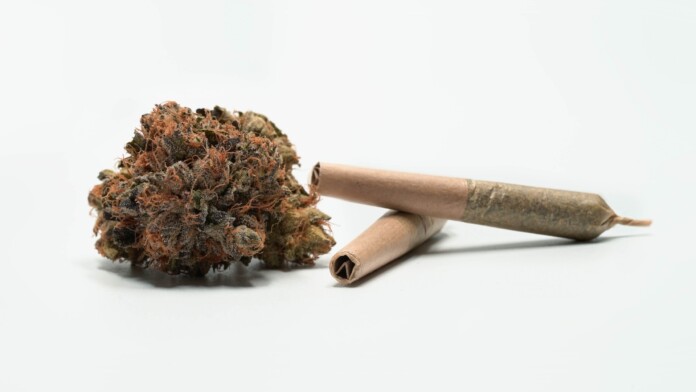
Maricopa City Council unanimously approved updated zoning codes for cannabis facilities during an April 4 meeting but dual licenses – one for medical marijuana and one recreational sales – are still required by city law.
The zoning codes approved by council members included updating definitions and the minimum distance marijuana sales facilities may be located from schools. They did not, however, include updates to Maricopa’s municipal code that prohibits recreational-only facilities from operating in the city.
“Do you still have to have a dual license to have a facility? That’s very clear. In Section 8 of the city code that is a requirement,” said Denis Fitzgibbons, an attorney for the city.
Fitzgibbons referred to Section 8.40.040 of Maricopa’s municipal code that states “to the fullest extent allowable by law, the operation of a marijuana establishment is prohibited in city unless operated by a dual licensee at a shared location.” This effectively would prohibit any marijuana dispensary or shop from exclusively selling the drug for nonmedical use.
“That provision of the city code never changed,” he said.
Council member Vince Manfredi believed that until the city code is changed, standalone recreational marijuana shops could be dissuaded from entering Maricopa’s market as sales boom across the state.
“By requiring dual licensing, you’re just giving someone that wants to build a recreational marijuana dispensary more hurdles to jump over,” Manfredi said. “That makes it cost prohibitive sometimes for a smaller recreational marijuana company to open.”
Among those hurdles for a recreational marijuana dispensary would be attempting to attain a license for medical marijuana. State law restricts the number of medical marijuana dispensaries by issuing one license for every 10 pharmacies registered.
Additionally, the Arizona Department of Health Services stopped issuing medical marijuana licenses in 2021, with a brief exception in March. That month, the department issued six licenses in rural counties without dispensaries.
This means that under current city code, a facility that possesses only a recreational license would find it nearly impossible to open a storefront in Maricopa.
Sales for recreational and medical marijuana exceeded $1.3 billion in 2022 alone, according to the Arizona Department of Revenue. Recreational marijuana sales in 2022 increased by more than $282 million from 2021, while medical use declined by $255 million.
With at least one dispensary showing interest in coming to Maricopa, more discussion would be needed to amend the city code to allow recreational-only, single licensure facilities in the city, a bureaucratic process that could take at least two months.
“Discussion, notice to the public, it’s a lot of work,” Manfredi said of the process. “It could take eight weeks or longer for us to get a code change in.”
Vince Manfredi is a co-owner of InMaricopa.

![3 things to know about the new city budget Vice Mayor Amber Liermann and Councilmember Eric Goettl review parts of the city's 2024 operational budget with Mayor Nancy Smith on April 24, 2024. [Monica D. Spencer]](https://www.inmaricopa.com/wp-content/uploads/2024/04/spencer-042424-preliminary-budget-meeting-web-218x150.jpg)






![MHS G.O.A.T. a ‘rookie sleeper’ in NFL draft Arizona Wildcats wide receiver Jacob Cowing speaks to the press after a practice Aug. 11, 2023. [Bryan Mordt]](https://www.inmaricopa.com/wp-content/uploads/2024/04/cowing-overlay-3-218x150.png)



![Alleged car thief released without charges Phoenix police stop a stolen vehicle on April 20, 2024. [Facebook]](https://www.inmaricopa.com/wp-content/uploads/2024/04/IMG_5040-218x150.jpg)

![3 things to know about the new city budget Vice Mayor Amber Liermann and Councilmember Eric Goettl review parts of the city's 2024 operational budget with Mayor Nancy Smith on April 24, 2024. [Monica D. Spencer]](https://www.inmaricopa.com/wp-content/uploads/2024/04/spencer-042424-preliminary-budget-meeting-web-100x70.jpg)


